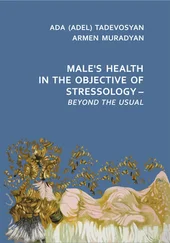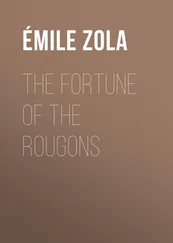Then, as if only in that moment had she realized that she was naked, she rushed back to bed with a shudder of alarm in order to hide and cover herself. She was so white that when she was nude her blonde hair was drained of its colour by the glare of her naked body.
When they went down to the lobby of this small provincial hotel she was intimidated by the respectful gazes of the service people and the clerks, as though their youth brought with it an aura of mystery, or even of scandal. Everything she saw made her happy. She rode all day on the charming Sibiu tram from the Upper City to the Lower City, she was amused by the peaked caps of the taxi drivers, who looked like Austrian officers in Viennese operas, by the Saxon women’s bulky provincial dresses, cluttered with clasps, flowers and knots. If she’d had her sketch pad with her she would have drawn them, as she found inspiration for pictures everywhere.
With a single picture everything from Sibiu came back to her. It was a meal on the sidewalk, in front of a restaurant at lunchtime, when the children were just getting out of school. A group of girls passed in front of them, and Ann stopped one of them, asking her what her name was.
“Ingrid,” she replied, a little frightened, while her classmates added with greater courage: “Ingrid Schreiber.”
Ingrid was blonde, she had braids down on her back, a blue peaked worn boyishly on her forehead and two slanted eyes, which gave her angelic Saxon face the peculiar grace of a tiny Dobrogean Tartar.
“Ingrid, has anyone told you that you’re beautiful? Give me paper and a pencil from your satchel. I want to draw you.”
Ingrid was fearful and proud, while Ann captured in a hasty sketch her air of an astonished child, a sketch which on her return would become a portrait in oils, hung above the bed in Ann’s room, from where she could look farther, with that same bewildered look, at things that she did not understand.
Where was that Ann of the first days of their love now?
Then she had been ready at any hour of the day to receive him or visit him, to accept his invitation or his refusal, to pack her bags in a moment when he came to take her away on a trip for several days, or, on the contrary, to unpack them when, unexpectedly and without asking her, he abandoned a departure that they had been planning for ages and which, during this time, had filled her with childlike joy.
“Do you never ask anything, Ann?”
“Because, my love, I’d only ever have, a single question — ‘Why don’t you love me?’ — and that, you see, is something I don’t want to ask.”
As in any love affair started without effort (since, blonde as she was, without mysteries or secrets, Ann appeared to be the type predestined to have an effortless love affair), the fact of her reaching this stage of suffering was inexplicable to him. Her last smile, her last gesture were familiar to him — yet the day had to come in which each smile was an enigma, each word a secret; the time had to come when the simple fact of glimpsing her became difficult, and often impossible, a time when he spent whole nights scouring restaurant after restaurant, bar after bar, in the hope of finding her at last and of seeing her, if only for a brief instant.
Yet when he found the old Ann again, when she happened to return to him full of love (“You’re an idiot and you’re the only one I love”), when he saw her moving naked around her apartment, dropping things on the floor and forgetting where they were, he would halt her, dishevelled, in one of her comic poses, with her hair falling across her face, with one stocking draped over her arm and the other flung around her shoulders like a scarf and, knowing too well that this lovely, scatterbrained girl was, nevertheless, lost to him, that in two days’ time the suffering would start again, he looked at her for a very long time. “Ann, let me see what a femme fatale looks like.”
There were countless things which at the beginning he had barely noticed, with a kind of casual amusement, but which later — without his knowing exactly when or why — he started to observe with a tormented anxiety. He was annoyed by how many people knew Ann. Their arrival at a restaurant was greeted by dozens of stares that turned towards her with an indiscreet, insistent quality.
“How do you know so many people? Who’s that guy who just went past?”
Her replies were usually vague, evasive. “I don’t know who he is. He came to the exhibition.” Beyond these imprecisions, Paul saw great mysteries waiting to be unravelled.
More wounding were her detailed replies, uttered with indifference.
“I met him three years ago, on the train to Budapest.”
Paul envisaged the sleeping car, the blue lights; Ann, seated next to the window, speaking with her chance travelling companion; he heard her laughing (because, oh! she laughed so easily…) when a more powerful jolt shook him. He imagined the white sheets of the bunks, as seen through windows left open, the colour of the wilderness, her passage from one compartment to another in the middle of the night… He remembered the casualness with which she had yielded to him at the beginning — and his memories scandalized him. He wished she had resisted him more then, so that now he might be able to believe that for her whether or not she went to bed with a man was not a meaningless question.
In each alien glance that was directed towards Ann, in each greeting, he seemed to see a memory and an invitation. He was furious that politeness demanded that he, too, reply to those greetings, signals that went over his head like so many telegrams in code, which he intercepted without being able to read them, for nobody could assure him that each new greeting didn’t bear a message, an allusion or a proposition: “Do you remember?” or “I’m waiting for you.”
Ann’s openings brought new people into the galleries: faces from the bars, faces from the race tracks, faces from show business. Two days later the society section of the newspapers would publish photographs and names from “the most dazzling opening of the year.”
Her paintings sold almost too well, a fact that Paul didn’t notice at first, but which later, when, without wishing to, he became more closely acquainted with the “market” in paintings, struck him as worrying. When a painting by Margareta Sterian or Cornelia Babic sold for 3000 or 4000 lei, when Iorgulescu-Yor, who still had the reputation of “being a good investment,” was selling a 30 by 50 centimetre canvas for 5000 lei, while a 70 by 70 centimetre canvas went for 8000, Ann’s paintings were earning prices that only an Iser or a Petraşcu could ask. 9She became famous among artists for a small, blue painting of Balcic, pleasant enough but not extraordinary by comparison with her other works — which she sold for the fabulous sum of 50,000 lei.
When it fell to her to participate in collective exhibitions at the Salon or Our Group, her paintings easily distinguished themselves from those of others by that white cardboard tab that gives prestige and lustre to a painting: sold . Paul was uneasy at the swiftness with which, from the first days, this white cardboard flowered in the corners of her canvases, while other painters had such difficulty placing their paintings that several remained unsold at the end of the exhibition. He would have liked to see Ann show a little discretion in advertizing her satisfaction, a little casualness about her success, but once, when he tried to make her understand this, he attracted from her a crushing reply: “What? You want me to be ashamed that I’m successful?”
It was an even more crushing retort, given that this was precisely what he would have asked of her: that she show a little shame for the successes she enjoyed.
Читать дальше












